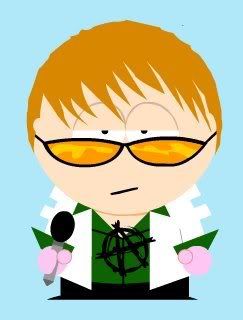There are really two issues at play in this chapter: censorship and racism in literature. The two issues were inextricably entwined in the incident Webb details. However, it's important to view censorship issues separately from the issues of race surrounding teaching Huckleberry Finn.
As Webb states, educators need the freedom to design their own curriculum in order to teach effectively (109). Interestingly, the school district in question had a uniform curriculum. The books were taken out of the hands of the teachers teaching them across the board. The problem is not that parents and students complained about the text being taught; the problem is that administrators failed to follow their own policies and allowed the situation to escalate.
Most teachers get their ire up when faced with forced censorship. However, we should avoid knee jerk reactions to parents or students complaining about a text we are teaching. We should ask questions and listen to their answers carefully. If someone is offended by a text, we need to understand why, respect his opinion, and then make a decision accordingly.
I am not sure if I would ever teach Huckleberry Finn at this point. This is not a matter of self-censorship. I have no problem teaching controversial texts if there is a point to it. When it comes to this text, however, I have to ask myself what is gained by teaching it. If I am teaching it just because it is controversial and I want my students to unpack its cultural baggage, then why bother teaching literature at all? Cultural studies without literature is sociology.
Huckleberry Finn at best creates a minstrel caricature of an African American man. It does little to contribute positively to today's conversation concerning race (if it ever did). I agree with Webb that still today not enough African American literature is represented in our teaching canon (122). Why then, should we teach a text written by a white man that doesn't even do the job we need it to do? There are far better texts to choose from.
Quotations to Live (Teach) By
The world is a dangerous place to live, not because of the people who are evil, but because of the people who don't do anything about it.
Albert Einstein
Subscribe to:
Post Comments (Atom)


1 comment:
Are you saying that there are 'far better texts to choose from' than Huck Finn, in the area of presenting a light on the history of racial differences and how the white man treated the African-American man in the eighteen-hundreds? If so, do tell which novel, as I haven't seen one yet.
Post a Comment